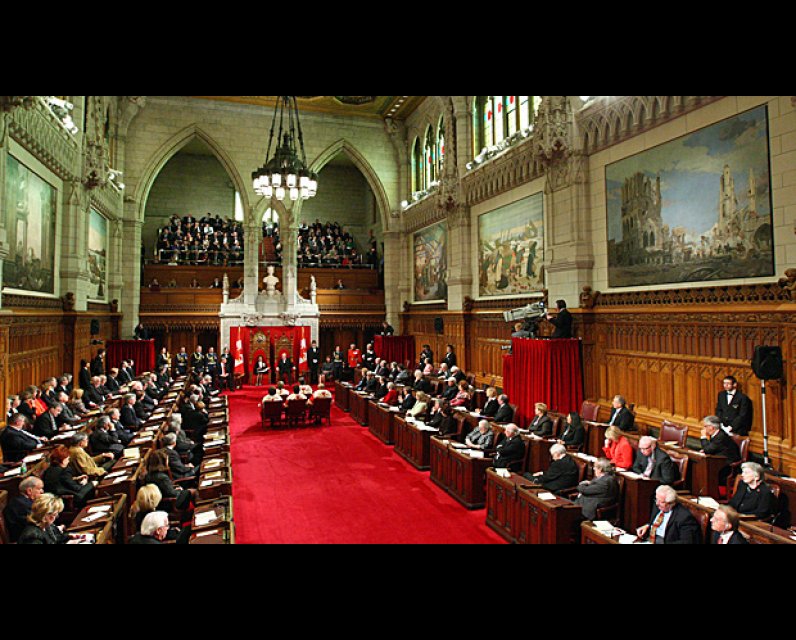Unpublished Opinions
Trudeau aims to ensure Senate appointments based on merit

Originally posted to my facebook page at: https://www.facebook.com/permalink.php?story_fbid=10153426035183752&id=7...
My take on Senate reform to date, partly motivated by a poorly-informed and misguided criticism (nonetheless, posted below) of the plan announced by the government this past Thursday.
The Trudeau government's aim is to set up a system to ensure appointments to the Senate are based on "merit" rather than simple political loyalty or service. While one would think such an objective would be unassailable, and while it has elicited broad -- albeit initial -- approval, some cynics and malcontents have spoken up in opposition. As one example, the commentary by Jim Warren is flawed in so many ways I found it impossible to ignore.
To begin with, the author's starting premise -- that the plan is an "attack on politically partisan individuals" -- is absurd. In fact, contrary to what the author suggests, the Liberal plan does not necessarily exclude those who have partisan involvement. As the Canadian Press reported, "You'll need to demonstrate an ability to contribute to the Senate's work in an independent and non-partisan manner, although past political activity will not disqualify you."
This requirement is entirely supportable -- and in no way an attack on partisans. Filling the red chamber's seats with intelligent, experienced people who understand their loyalty should be to the public, not to the Prime Minister's Office, is a good move. It is far more likely to result in sound analysis of legislation - ie., sober second thought - than a continuation of the decades long practice of mirroring House of Commons debates in the Senate.
Though Justin Trudeau couldn't wave a wand and erase their political stripes, his decision to remove Liberal Senators from his party's national caucus in January 2014 was part of a longer-term strategy that could make the Senate a much more constructive institution. While it was a shock to the system of the Liberal party loyalists who had been appointed to the Senate, I saw it as liberating, offering them the independence that plenty of evidence suggests they had previously been lacking.
I suspect the Conservative senators have been envious of the freedom enjoyed by the Liberals formerly known as Liberal Senators. After all, what's the point of occupying a seat in the Senate, poring over legislation, participating in debates, and listening to committee witnesses if you're only ever going to vote according to the dictates of the party whose leader appointed you? Why put any intellectual effort into something if you don't get to apply your own intellect when it's decision time?
Among other things, Jim Warren's criticism of this week's announcement also seems to have confused, or at least conflated, two separate problems: intergrity and partisanship.
To further support his contention that the Liberal plan is, as he puts it, "an abysmal failure", Warren notes that "some of the scandals that have plagued the Senate have come from so-called “merit based” senators -- he cites Senators Duffy and Wallin -- who "were supposed to be non-partisan".
This is a side issue. Whether one has a partisan past or not is separate from the question of integrity. If you follow the news long enough and closely enough you will have seen evidence of ethical shortcomings in every occupation.
The Liberal plan announced this week does seek to address the integrity question, however, by requiring that potential senate appointees demonstrate "outstanding personal qualities," including adhering to the principles and standards of public life, ethics and integrity. Beyond that, the government is encouraging the Senate to re-consider its apparently far too lax rules -- intentionally so, in my view -- regarding eligible expenses. They are right to do so.
Some cynics continue to regard Trudeau's 2014 Senate move as a mistake, borne of naivete and/or idealism. They believe that he will come to regret the lack of control. They don't get it.
Jump ahead in time for a bit to imagine a post-partisan Senate that begins to work the way Trudeau and now others hope: if Senators aren't voting in a partisan manner, and yet as a government you have failed to convince them that a given piece of legislation deserves passage, shouldn't that give you pause? I'd say so. If there are intelligent, well-meaning, experienced, thoughtful people filling those seats, it should send the drafters of the failed piece of legislation back to the drawing table -- not into apoplexy. (To be fair to hard-working senators, it should be acknowledged that there have been many instances in the past when constructive amendments emerging in the Senate have been respected, appreciated and graciously accepted by the House of Commons. The problem is that this has not been happening with anywhere near as much frequency as it should.)
If it is realized, Trudeau's vision will require governments to earn support for their legislation in the upper chamber based on sound argument, rather than whipped votes. Even if we see evidence of more free votes in the House of Commons under the new government, we can still expect to see voting patterns mainly following partisan lines. There's nothing fundamentaly wrong with this. Considering differing platforms, beliefs and values of the parties whose members were elected to those seats, this shouldn't be too surprising.
All the more reason, therefore, to want sound analysis by a second body constituted by indviduals who put loyalty to the public ahead of any partisan interests or influences.
Trudeau's 2014 Senate move was a bold first step. This week's announcement was a consistent and confident second step.



Comments
Be the first to comment